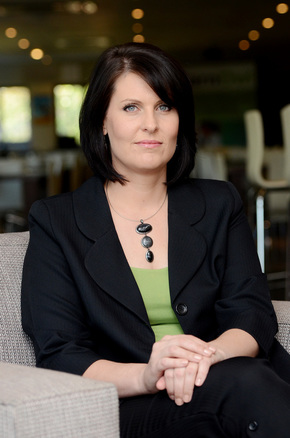 Africa’s current shortage of experienced and skilled directors is one of the chief hurdles to the strengthening of its corporate governance capabilities. The African Corporate Governance Network (ACGN) aims to play a positive part by conducting research on and storing information on corporate governance. In this way, it will create a resource for its members to use, particularly when it comes to supporting the ongoing training of a pool of directors. “The case for corporate governance in Africa is a strong one, but we face significant challenges,” says Jane Valls, chairperson, ACGN. “The continent’s economies are very diverse in terms of economic and political maturity, and there is no continent-wide standard of corporate governance. The ACGN has a critical role to play in lobbying legislators, as well as educating both the private and public sectors about the benefits of corporate governance.” At its last meeting in Dar es Salaam, the ACGN has welcomed the Institute of Corporate Governance Ethiopia and the Institute of Corporate Governance of Tunisia as members, and both the Ethics Institute of South Africa and the Association of Chartered Certified Accountants have become associate members. In all, 11 countries were represented at the meeting (Tanzania, Kenya, South Africa, Mauritius, Uganda, Nigeria, Mozambique, Zimbabwe, Zambia, Ethiopia and Tunisia), while the ACGN has now grown to represent a total of 14 countries, indicating how broad the support for the ACGN initiative is. “The continuing expansion of the ACGN is good news for Africa’s growth prospects,” says Angela Oosthuizen, CEO of the Institute of Directors in Southern Africa. “South Africa is fairly mature in corporate governance terms, having released the first King Code in 1994 and with the fourth revision now underway. We are committed to making our experience available to our colleagues in the ACGN, and hope that King IV will act as a benchmark for African codes of corporate governance.” The ACGN was founded in 2013 to help build capacity in corporate governance across the continent, so building better organisations and corporate citizens across Africa. Its members are united in their belief that strong corporate governance is essential to successful, sustainable companies and thus holds the key to African economic growth. ENDS _______________________________________________________________________________________________________ MEDIA CONTACT: Cathlen Fourie, 012 664 2833, [email protected] For more information on the IoDSA please visit: Website: www.iodsa.co.za Twitter: @The_IoDSA LinkedIn: The Institute of Directors in Southern Africa group
0 Comments
Development of women must turn from an August flash in the pan to a conveyor belt of new talent6/8/2014  Every August, new initiatives are launched to promote the empowerment and development of women—with many of them disappearing equally quickly. To be effective, development programmes need to be viewed holistically according to Angela Oosthuizen, newly appointed CEO of the Institute of Directors in Southern Africa (IoDSA). “We would like to encourage both professional associations and companies to adopt a holistic approach that aims to elevate women to a new professional level, and so contribute to greater gender diversity in business, the boardroom and society as a whole,” says Oosthuizen. “We need to turn the development of women from an August flash in the pan to a conveyor belt of new talent.” The IoDSA is working with a variety of identified stakeholders to help design and deliver a programme that embodies such a holistic approach. The programme aims to broaden and deepen the pool of female talent available for non-executive board positions. “We have seen studies recently confirming that board diversity dramatically increases the value that boards contribute to organisational performance,” says Oosthuizen. “However, we can’t keep tapping into the same set of resources when it comes to finding female non-executive directors. We have to expand access to existing talent and groom new talent.” Oosthuizen emphasises that potential candidates are readily available, and can often be found via the professional associations to which they belong. These women would obviously have qualifications and experience in their current disciplines, such as engineering, accounting and so on—what’s needed is a way to help them elevate or evidence their director competencies and, ultimately, obtain the coveted Chartered Director, or CD (SA), designation. “To do this in a sustained and sustainable way, we have created a model one could call the ‘circle of engagement’,” explains Oosthuizen. “We take a holistic approach that begins by providing knowledge via training, testing it via assessment and then practising how to use it via simulation.” Thereafter, a personal development plan can be created for each woman and matched to continuous professional development and ongoing mentoring. To close the circle, it’s important to map progress towards the stated goals. “Throughout, candidates can be supported via their membership of the professionals associations relevant to directorship, such as the IoDSA,” Oosthuizen concludes. ENDS _______________________________________________________________________________________________________ MEDIA CONTACT: Cathlen Fourie, 012 664 2833, [email protected] For more information on the IoDSA please visit: Website: www.iodsa.co.za Twitter: @The_IoDSA LinkedIn: The Institute of Directors in Southern Africa group |
Archives
July 2024
Categories
All
|

 RSS Feed
RSS Feed